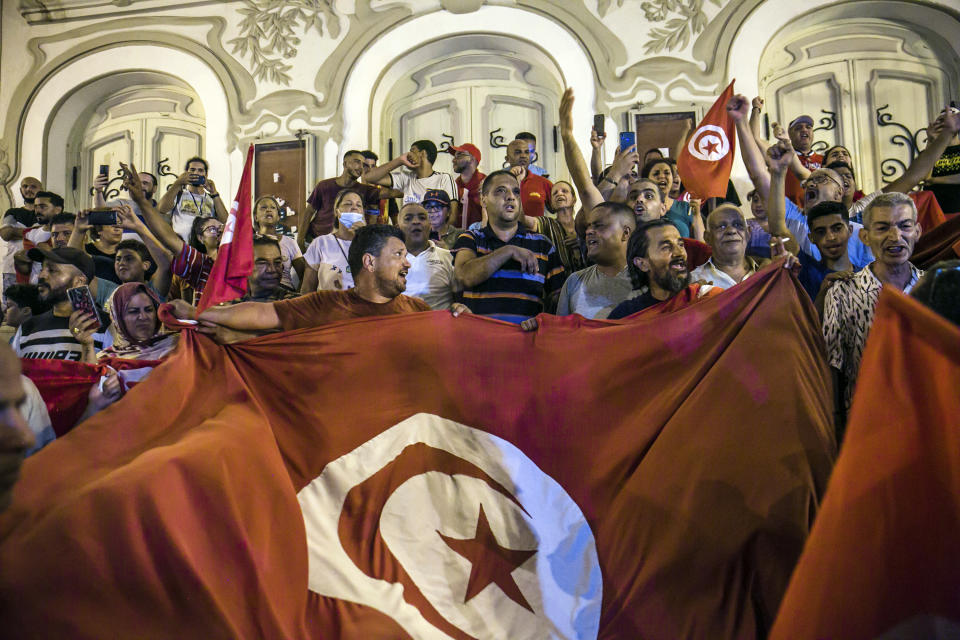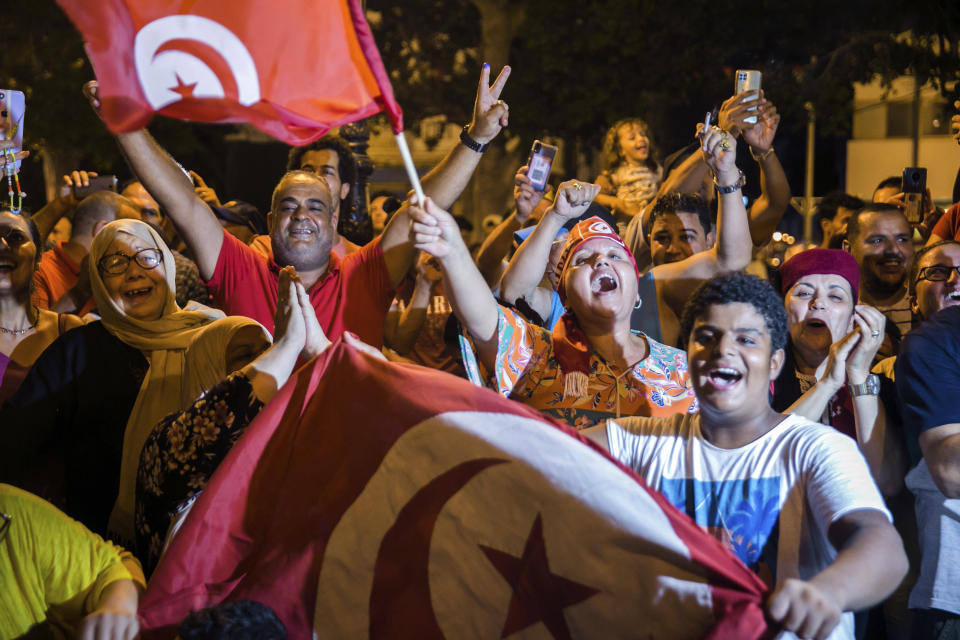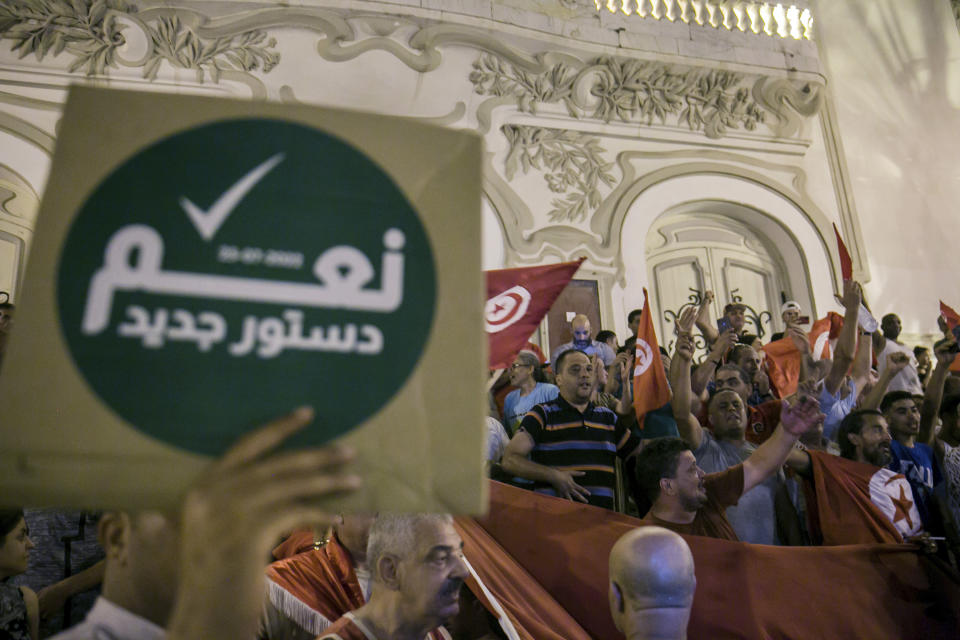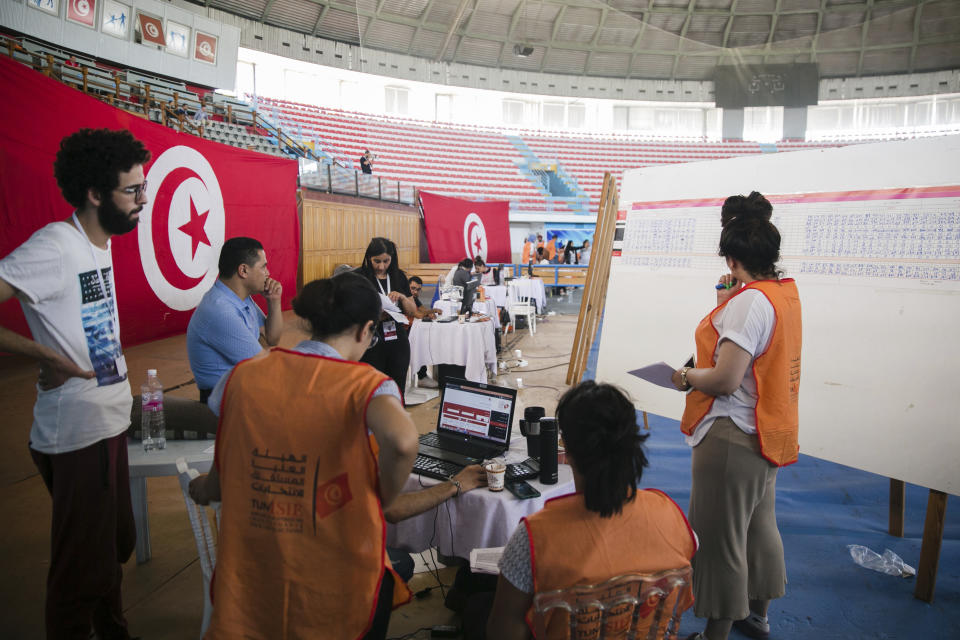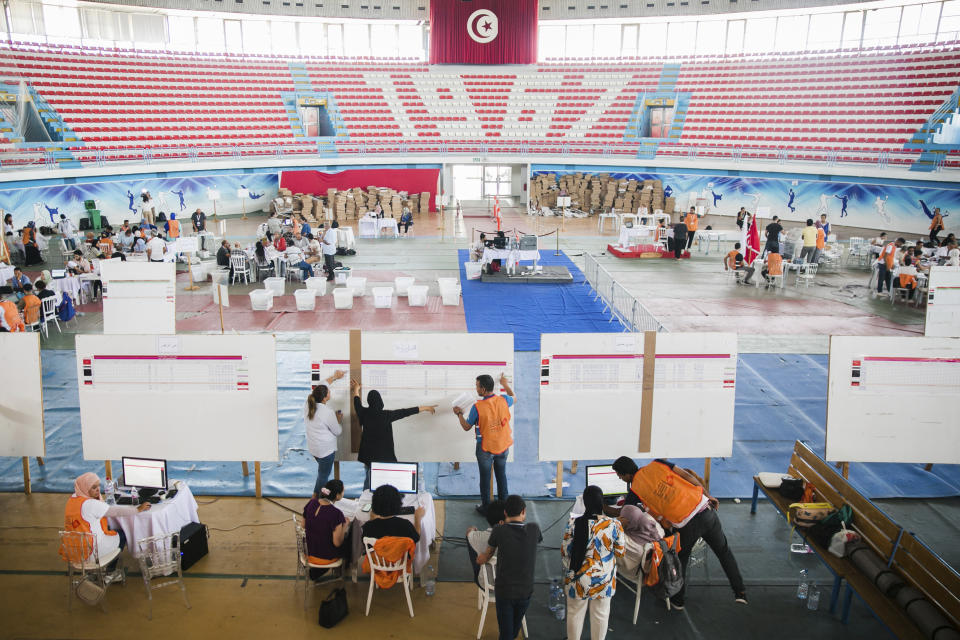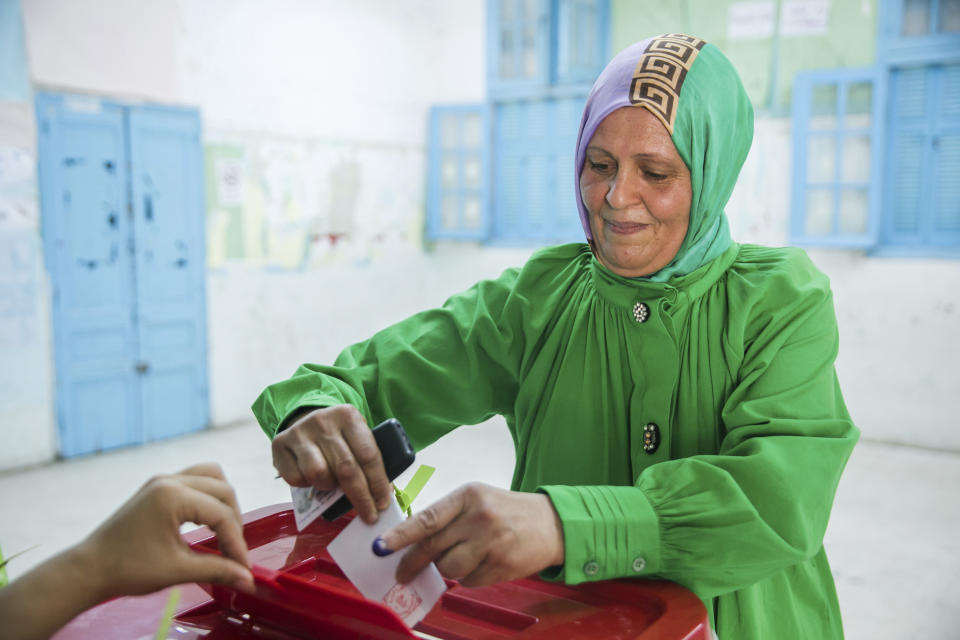Tunisians vote in favor of new constitution, officials say
TUNIS, Tunisia (AP) — Tunisians have voted in favor of a new constitution that critics fear could entrench efforts by the president to consolidate power, according to official preliminary results late Tuesday.
Initial results announced by Tunisia’s electoral commission said 94.6% of the votes backed the new charter, with 5.4% against. Turnout for Monday’s referendum was low, with just over a fourth of the nation’s voters taking part.
The new political system will see sweeping executive powers given to the president and the removal of key checks and balances, including weakening the influence of Tunisia’s parliament and judiciary.
The text was proposed and revised by Tunisian President Kais Saied himself, and has sparked concerns that the North African nation will see a reversal of hard-won democratic gains.
Critics warn that Saied’s new structure could pave the way to a new autocracy in the country that rose up against strongman Zine El Abidine Ben Ali in 2011 and kicked off the Arab Spring pro-democracy protests. Tunisia is the only nation to emerge with a democracy from those protests.
The referendum took place a year to the day after Saied froze Tunisia’s parliament and dismissed his government. Opponents then derided the move as “a coup,” but many Tunisians celebrated it after in exasperation with the country’s political elites and years of economic stagnation.
In the year since, Saied has given himself the power to rule by decree and has fired dozens of judges, decisions that have provoked a series of protests. Winning the presidency in 2019 with over 70% of the votes, Saied continues to enjoy widespread popular support, with recent polls putting his approval rating at well over 50%.
Many believe the new constitution will put an end to years of political deadlock and reduce the political influence of Tunisia’s largest party, Ennahdha, an Islamist party unpopular with many Tunisians.
However turnout Monday was low, with preliminary figures putting participation at 27.5% of the 9.3 million registered voters.
Political apathy has increased i the decade since the revolution. Tunisians have grown disenchanted with politics and preoccupied with daily struggles as unemployment has risen and purchasing power declined.
But Saied’s critics also called for a boycott of the referendum, saying the process was flawed. Among complaints, they said Saied altered the makeup of Tunisia’s electoral commission, undermining its independence, and alleged that political parties wanting to campaign against the constitution were blocked from holding campaign events.
Opposition politician Samira Chaouachi, a former speaker of Parliament, said Tuesday that three-quarters of Tunisians had shown that “they will not engage in this crime that is being committed against democracy and Tunisia.”
Concerns were also echoed by the international community.
The U.S. State Department on Tuesday noted the low turnout and said weakened checks and balances in Tunisia’s new constitution “could compromise the protection of human rights and fundamental freedoms.”
